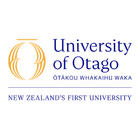- 最新消息
- Find usIDP AustraliaIDP BahrainIDP BangladeshIDP CambodiaIDP CanadaIDP ChinaIDP EgyptIDP GhanaIDP Hong KongIDP IndiaIDP IndonesiaIDP IranIDP JordanIDP KenyaIDP KoreaIDP KuwaitIDP LebanonIDP MalaysiaIDP MauritiusIDP Middle EastIDP NepalIDP New ZealandIDP NigeriaIDP OmanIDP PakistanIDP PhilippinesIDP Saudi ArabiaIDP SingaporeIDP Sri LankaIDP Taiwan, ChinaIDP ThailandIDP TurkeyIDP UAEIDP VietnamIDP Corporate
- Social
- 繁體中文(台灣)
地點
New Zealand
資格
Bachelor Degree
費用
NZD38418
(2025)
時長
4 Year(s)
下個學年
26 February 2025
入學成績
6.0
雅思考試COURSE_INFO
Your action plan
步驟 1
Shortlist your courses
Choose the best three courses you’re most likely to pursue.
步驟 2
Check your eligibility
Get an instant in-principle offer for courses with the IDP FastLane tag.
步驟 3
Apply through IDP Live
Fill out the form once and use it to apply to multiple courses.






